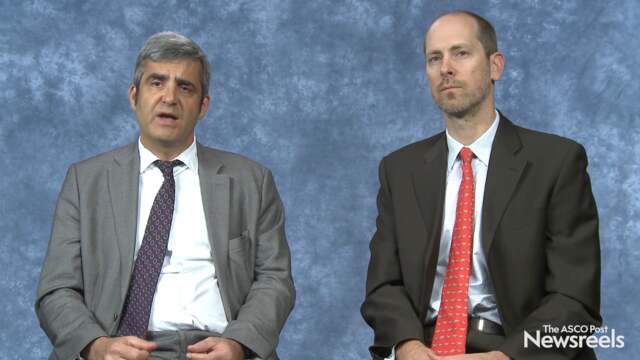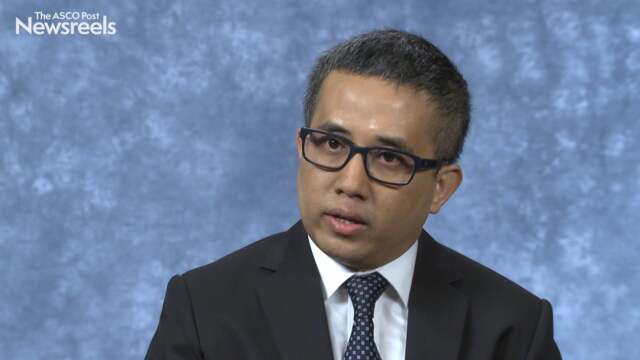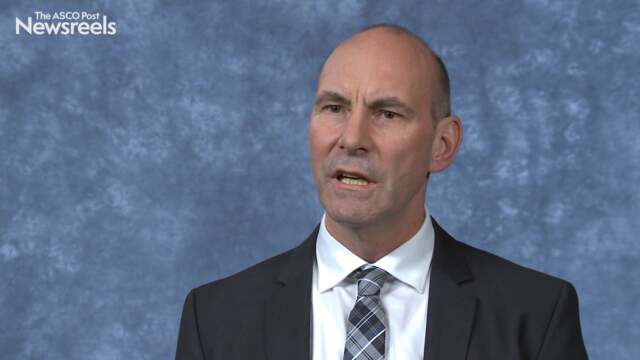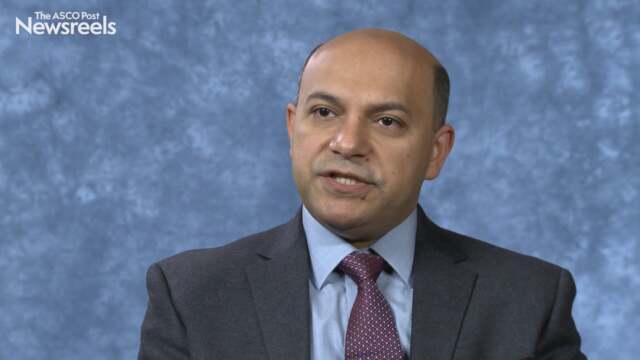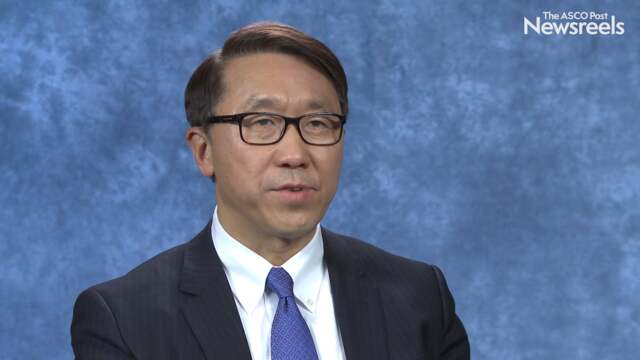Manish A. Shah, MD, on Gastric Cancer: Results From the RAINFALL Trial
2018 Gastrointestinal Cancers Symposium
Manish A. Shah, MD, of Weill Cornell Medicine, discusses phase III study findings on cisplatin plus capecitabine or fluorouracil with or without ramucirumab as first-line therapy in patients with metastatic gastric or gastroesophageal junction adenocarcinoma (Abstract 5).
Thierry André, MD, of Hôpital Saint-Antoine, and Michael J. Overman, MD, of The University of Texas MD Anderson Cancer Center, discuss findings from their respective CheckMate-142 studies on nivolumab and ipilimumab in patients with DNA mismatch repair–deficient/microsatellite instability–high metastatic colorectal cancer (Abstracts 553, 554).
Kyaw L. Aung, MBBS, PhD, of Princess Margaret Cancer Centre, discusses early study findings on genomics-driven precision medicine for advanced pancreatic ductal carcinoma (Abstract 211).
Florian Lordick, MD, of the University Medicine Leipzig, discusses study findings on intraperitoneal immunotherapy with the antibody catumaxomab for patients with peritoneal carcinomatosis from gastric cancer (Abstract 4).
Basem Azab, MD, of the Sylvester Comprehensive Cancer Center, University of Miami, discusses the impact on overall survival when more than 2 months elapse between finishing neoadjuvant therapy and undergoing esophagectomy (Abstract 2).
Andrew X. Zhu, MD, PhD, of Massachusetts General Hospital, discusses study findings on pembrolizumab in patients with advanced hepatocellular carcinoma previously treated with sorafenib (Abstract 209).
